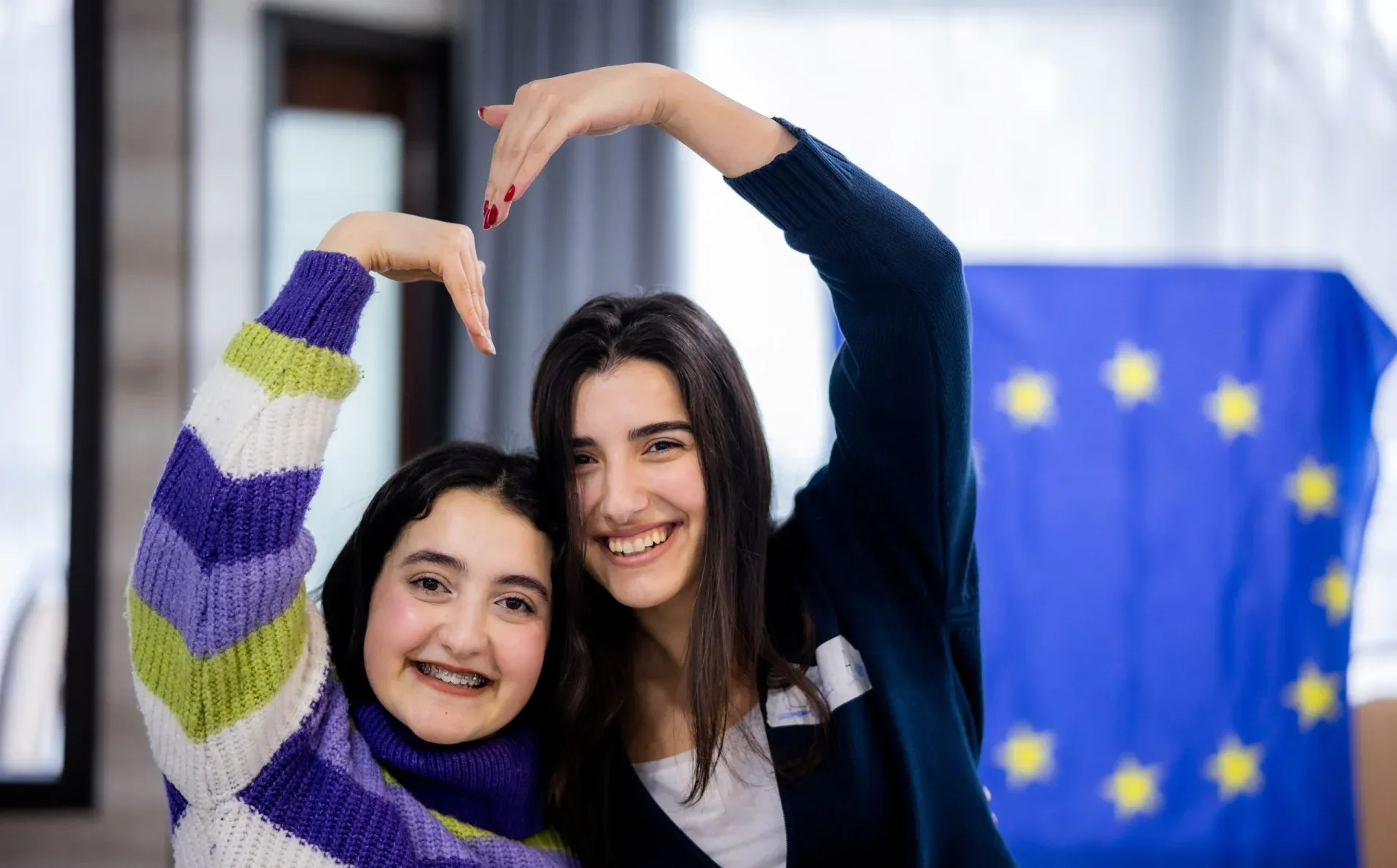
A journey of impact: celebrating five generations of EU4Youth Alumni Network
What happens when young people are given a platform and support to turn their ideas into action? Since 2019, the EU4Youth Alumni Network has been helping young changemakers to transform their ideas into meaningful impact across communities in the Eastern Partnership region.
The Alumni Network provides young people who have graduated from EU-funded programmes with the framework – including finances, skills and mentoring support – to bring their initiatives to life. Since its launch, more than 340 Alumni have led over 190 projects, often as dedicated country teams. Together, these projects engaged over 3,770 young people, most of them from disadvantaged backgrounds. Behind every number is a story of enthusiasm and commitment to make a real difference in local communities.
As the EU4Youth Alumni Network celebrates its fifth anniversary, it is time to reflect on the achievements of its Alumni and the lasting impact of their work. How do these six- to eight-month journeys of Alumni-led initiatives begin? It all starts with the communities that the Alumni are committed to support.
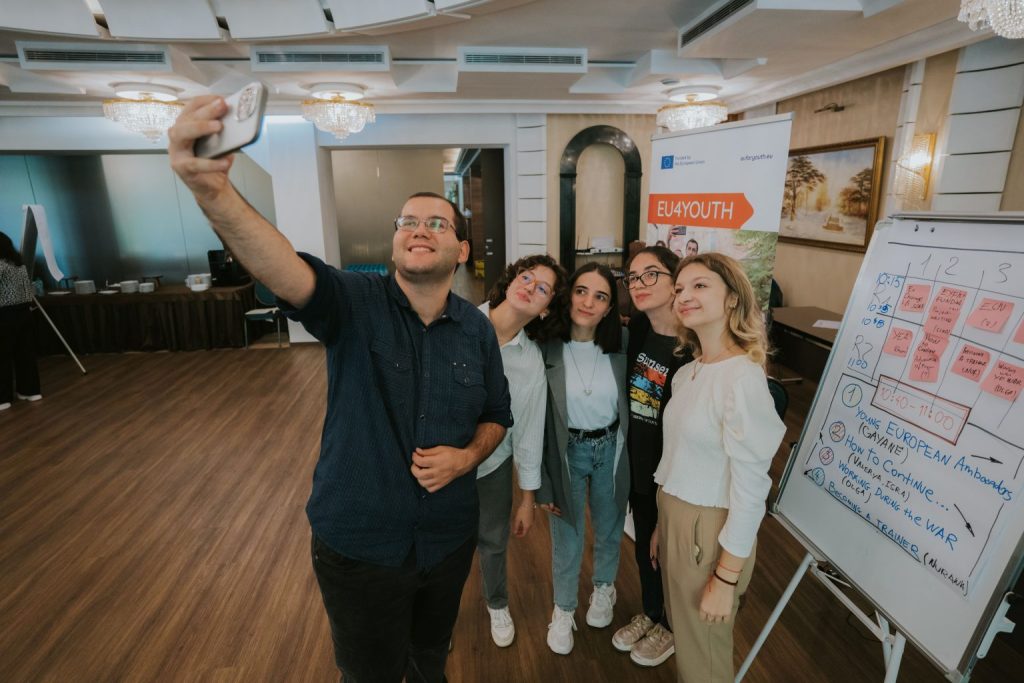
Needs assessment and ideation
At the heart of every Alumni initiative is personal experience. All projects reflect not only the interests and ideas of the Alumni, but also the challenges that young people, and especially those from disadvantaged groups, face in their communities. All Alumni work closely with the young people they are seeking to support, using participatory design methods like empathic interviews, non-formal education tools, and observations. They design initiatives with – not only for – their beneficiaries.
A key element of this process is the IdeaLab, an annual event where Alumni from across the region come together to exchange ideas, learn from mentors and peers, and co-develop their projects. As Igor Ciurea, a Network mentor from Moldova, explains, the mentors avoid offering ready-made project models. Instead, they “encourage participants to assess the capabilities, needs and interests of the community they are in, and develop their own projects based on this”. This is how the network has been able to create such a wide range of initiatives.
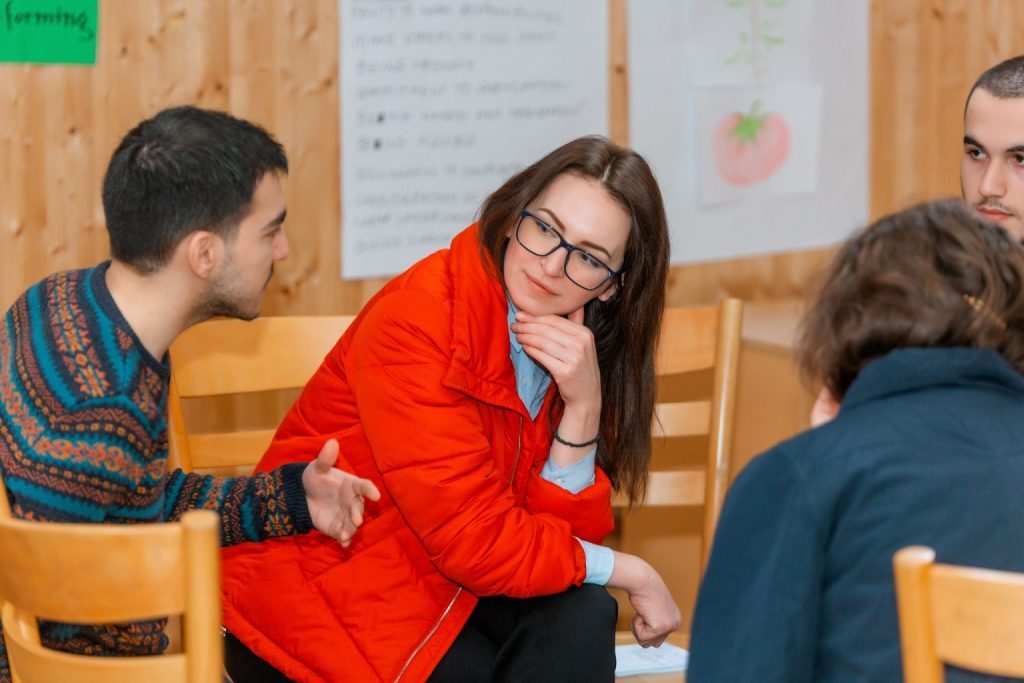
Turning ideas into impact
The projects launched by Alumni are diverse in both format and focus. While many initiatives are educational, they also include creative and community-building activities like movie gatherings, games, excursions and outdoor events. If a graduate decides to tackle more complex challenges, such as working with single mothers, engaging young people in prison, or children in orphanages, the means of interaction are adapted to accommodate these specific needs.
Most EU4Youth Alumni Network initiatives fall under four main themes, each reflecting the diverse interests and needs of young people in their communities. Some – like the ‘Girl Power 2.0’ initiative in Georgia or ‘Book Yourself’ from Azerbaijan – focus on developing future-ready skills, such as leadership, communication, and digital literacy. Others aim to build stronger communities through volunteering, cultural events, and civic dialogue. In Armenia, Alumni brought together young Yazidis and Armenians to foster mutual understanding and strengthen social cohesion.
The theme of civic participation also runs through many initiatives, with Alumni working to raise youth voices and to promote meaningful involvement in decision-making processes. Ukraine’s ‘Youth Club’ project created a safe space where young people could learn about civic processes and take an active role in shaping their communities. Finally, several initiatives focus on promoting EU values, including democracy, inclusion, solidarity, and peacebuilding.
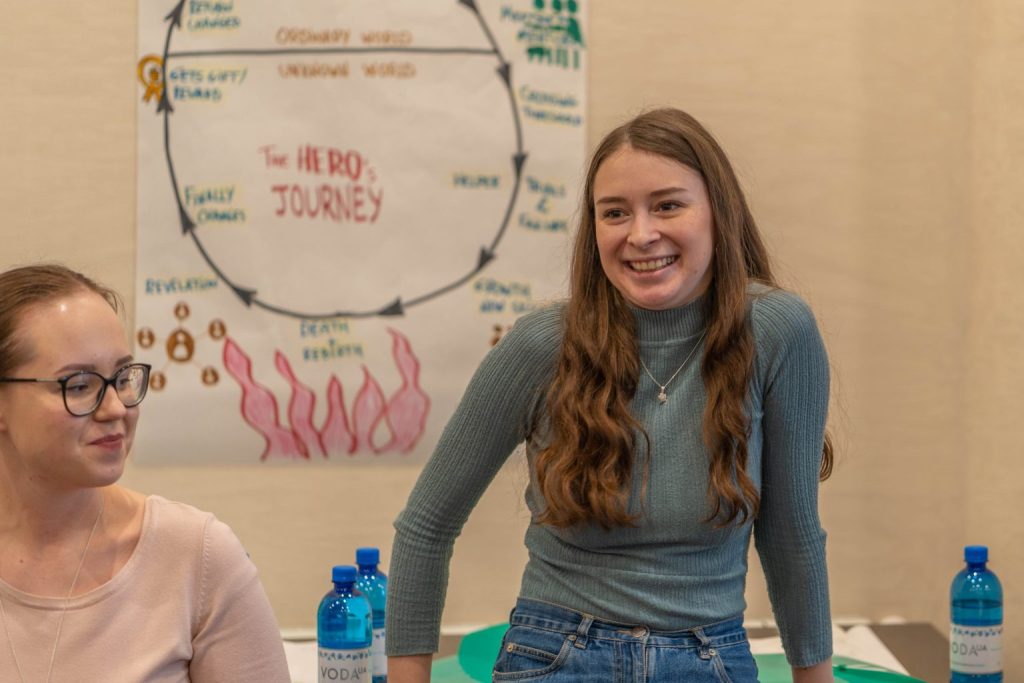
Faces of continuity: Alumni champions
Many Alumni return to the Network for a second year to expand their impact, deepen their leadership or continue supporting their community. Most of them appreciate the space and support provided to implement a new initiative, or to continue with the existing project to bring it to a new level. The rate of returning Alumni varies across the region: in Armenia and Azerbaijan, for example, more than half of each new cohort are returning participants.
Some Alumni even come back in new roles, mentoring, facilitating or leading regional events. Archil Tsulaia from Georgia, who joined as a participant and later became a mentor, recalls: “For me, the Alumni Network is a way to stay connected with people, ideas, and experiences that helped me grow. It’s like a bridge that connects where we started with where we are going.”
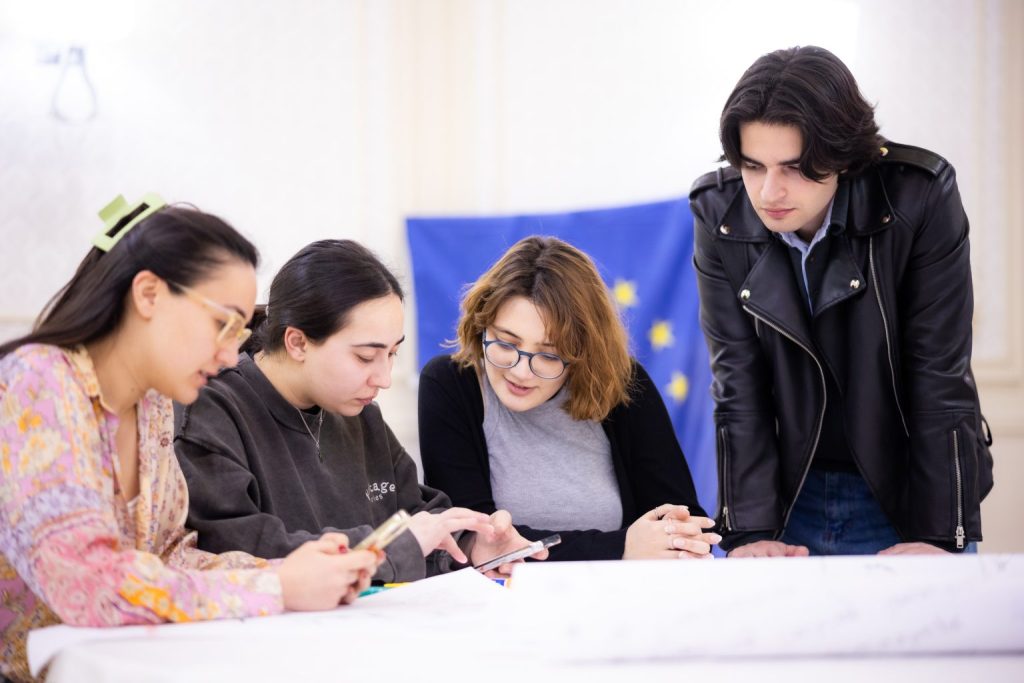
A dynamic, ever-changing support system
From the very beginning, the network has evolved in very challenging conditions: the COVID-19 pandemic, political and social unrest, armed conflicts between countries in the region, the Russian full-scale war in Ukraine, and other regional and global challenges.
However, the programme managed to weather the storms and adjust to the situation. Alumni and mentors quickly adapted and changed their approaches when necessary, transforming activities to an online format, trying out new tools, quickly identifying the changed needs of the community, or even restarting initiatives from scratch when needed. One powerful example is the ‘Sew to Survive’ initiative in Ukraine, where two Alumni reimagined their project after the war began, empowering young people to support their community while gaining practical skills.
The coordinator of the Alumni Network, Max Pijevskii explains: “The Network’s resilience comes from its structure: mentors take a personalised approach to each Alumni, responding to the specific needs of each initiative, and Alumni in return have direct contact with their communities.” This sets a solid and trustful base for future actions and continuity.
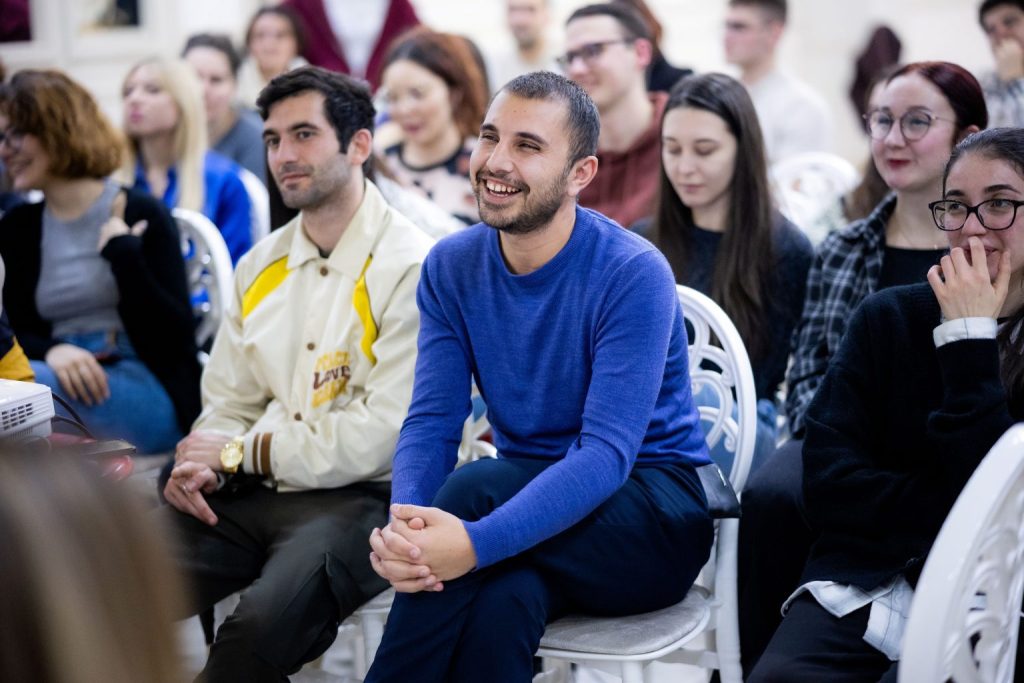
Lasting impact: the Alumni journey after the programme
For many Alumni, their community engagement doesn’t end with the programme – it is often a starting point. Former participants go on to join local NGOs, international networks, EU-funded mobility schemes. They also take up roles as leaders, facilitators, mentors or youth workers in education, fellowship programmes, policy, and youth organisations.
For example, Christian Vizir, a former Alumnus from Moldova, is currently the president of the National Youth Council of Moldova, while other former Alumni, such as Grigore Rinja, are also involved in various roles within the Council. Rezida Rzayeva established the ‘100 Girls of Azerbaijan’ initiative, which gained national recognition as well as international invitations, including to the UNESCO SDG4YOUTH Network’s Transforming Education Summit 2022, further amplifying its impact.
The power of the Network goes beyond individual development – it opens doors to regional cooperation and lasting partnerships. In Armenia, for example, the Network has strengthened local ties and fostered collaboration around the ‘Uniting Bridge’ NGO, led by Razmik Mnatsakanyan. Alumni such as Anahit Babkenyan and Kristine Hovhannisyan have gone on to co-create initiatives with Razmik, with several other peers joining the NGO. “For me, the EU4Youth Alumni Network has played a significant role as a youth worker and as the leader of a civil society organisation. I met my mentor, made friends who became colleagues, and built partnerships that help me grow,” said Razmik.

Looking ahead
The final Alumni cycle under the EU4Youth programme was launched in October 2024, welcoming a cohort of 60 motivated Alumni who started implementing their youth outreach initiatives throughout 2025. The final event of the EU4Youth Alumni Network will take place from July 12-14. It will mark not only the completion of the fifth round of the network but also celebrate each of the five cohorts – their achievements and lessons learnt – and bring together Alumni and mentors from the Eastern Partnership region.
Though the Alumni Network may come to an end, its impact will linger. The skills, community, and partnerships gained through the Network will last, as Alumni keep building stronger, more inclusive communities across the region.